Sony FE 28-70 mm f/2 GM
4. Image resolution
Let's check how the Sony FE 28-70 mm f/2 GM compares – its results in the frame centre at 28, 50, and 70 mm presents a graph below.
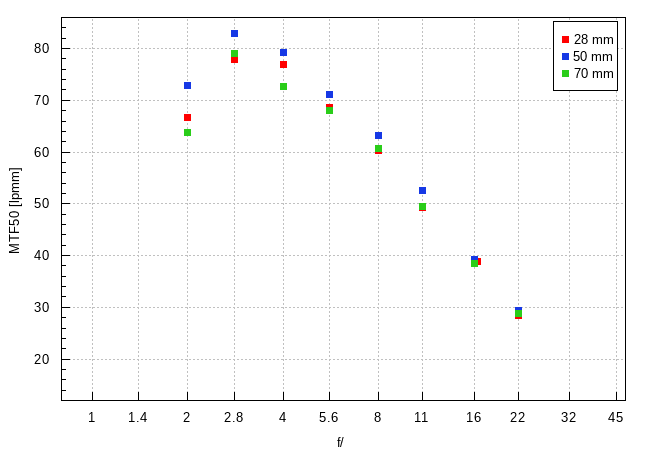
I don't have any doubts that we deal here with an outstanding performance. To be honest even if such graphs were put into tests of any of 2/28, 2/50, and 2/70 primes I would still call them outstanding. Mind you, here we deal with a zoom lens, much more difficult to construct.
Please Support UsIf you enjoy our reviews and articles, and you want us to continue our work please, support our website by donating through PayPal. The funds are going to be used for paying our editorial team, renting servers, and equipping our testing studio; only that way we will be able to continue providing you interesting content for free. |
- - - - - - - - - - - - - - - - - - - - - - - - - - - - - - - - - - - - - - - - - - - - - - - -
In order not to sound groundless you can compare here other f/2.0 standards so praised by us, namely the Voigtlander Apo-Lanthar 2/50, a lens that was featured on our lists of record-breakers for a very long time, and the well-put-together Sigma C 50 mm f/2 DG DN.
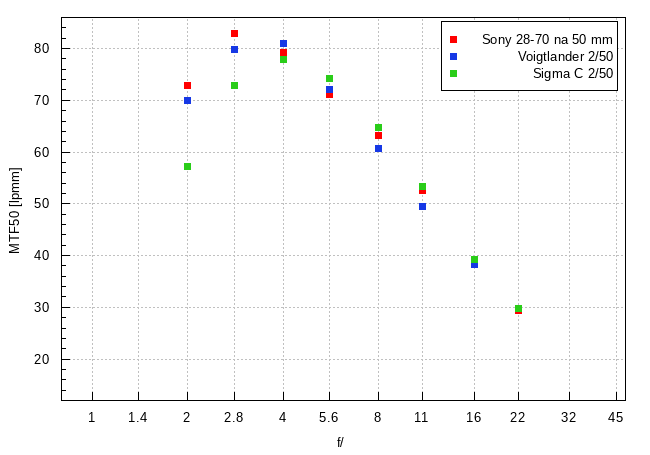
As you can notice, the Sigma is the weakest here and the Sony and the Voigtlander, are, within the margin of error, equally good, even though, officially, the Sony has higher results and by f/2.8 reaches a value of 82.9 lpmm.
Does the edge of the frame have any weak points? Let's check the situation on the edge of the smaller APS-C sensor.
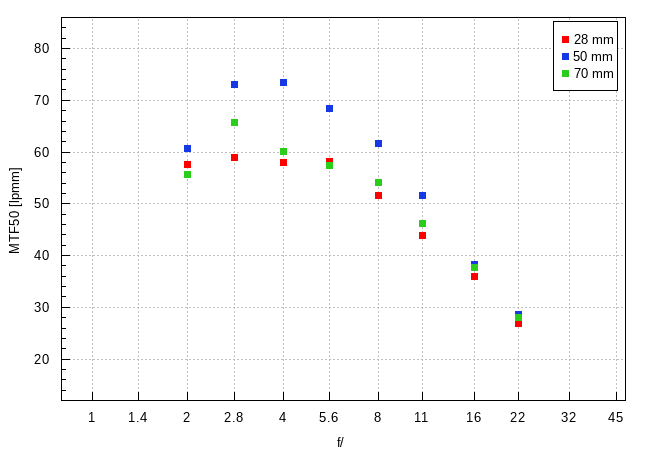
Once again the 50 mm focal length fares the best, shaming even the sharpest primes. Both ends of the focal range are a bit weaker but still they land at least on a good level because on stopping down the aperture you are able to reach near 60 lpmm and at the maximum relative aperture you get more than a dozen lpmm above the decency level. In other words there are no reasons to complain.
Can you find such reasons on the edge of full frame? Let's glance at a graph below and check.
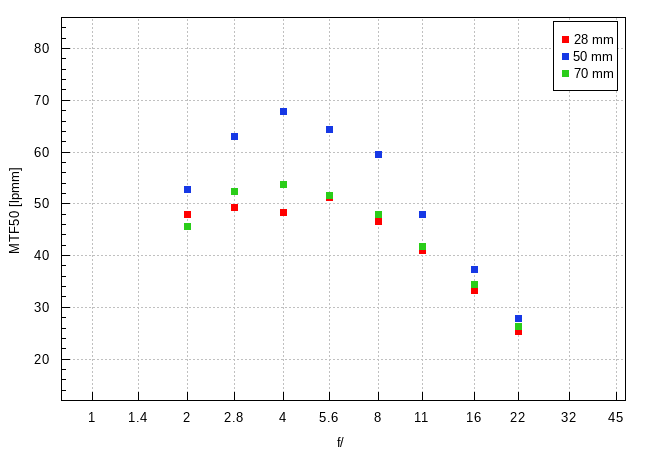
Here the advantage of the 50 mm focal length is even more distinct and its performance at this point still remains worth an excellent prime lens. In case of 28 and 70 mm focal length the maximum values keep a good level of 50 lpmm. At the same time you don't see any slip-ups, because even at the maximum relative aperture the MTFs get near 46-48 lpm, and it means at least decent quality of images.
The summary of this chapter can only be enthusiastic. The Sony FE 28-70 mm f/2 GM, a zoom lens difficult to construct, offers you a performance worth the best system primes. It really would be foolish to expect more.
At the end of this chapter, traditionally, we present crops taken from photos of our resolution testing chart which were saved as JPEG files along the RAW files, used for the analysis above.
| A7R IIIa, JPEG, 50 mm, f/2.8 |
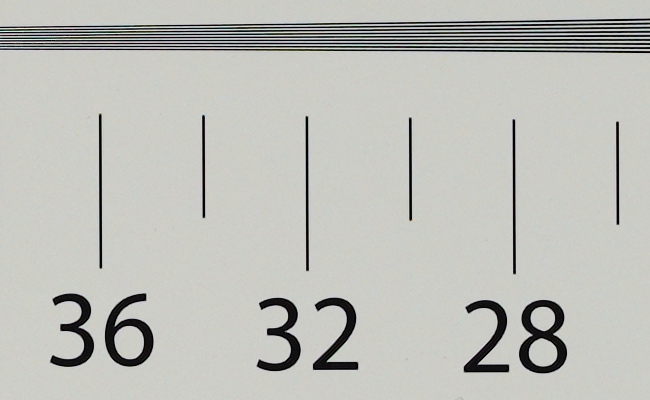 |
| A7R IIIa, JPEG, 70 mm, f/2.0 |
 |






